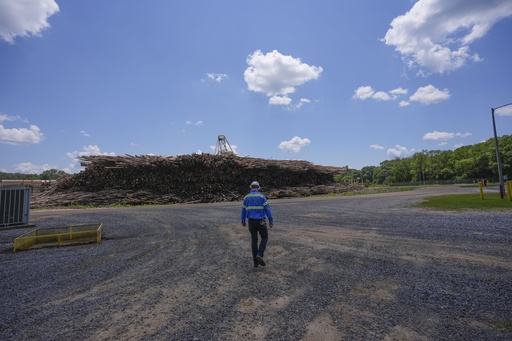In GLOSTER, Mississippi, the presence of a wood pellet plant near Shelia Mae Dobbins’ home has caused concerns for residents. Dobbins has noticed industrial residues on her truck and experienced a decline in her quality of life since the facility opened in 2016. With federal regulators citing exposure to unwanted air particles and increased rates of asthma among residents, Dobbins attributes her deteriorating health to the plant’s operations.
Wood pellet production has surged in the U.S. South to meet the European Union’s demand for renewable energy sources. However, many communities near these plants, primarily African American and economically disadvantaged, have reported worsened air quality and health issues. With President Joe Biden’s initiative to combat climate change offering significant funding for such projects, debates arise over the impact on marginalized communities.
Despite fines imposed on industry players for pollution violations and a major producer’s bankruptcy, supporters view wood pellets as a crucial solution to the climate crisis. Biomass has become a booming industry in the Southeast, with a substantial increase in wood pellet production capacity over the years. However, concerns persist regarding the environmental and health consequences for nearby residents.
In Gloster, Mississippi, the environmental agency fined a wood pellet plant for violating air emissions limits, raising alarms about air quality in the town. While the company claims to have implemented pollution controls, local residents remain skeptical about the effects on their health. Experts warn about the dangers of fine particulate matter from industrial pollutants, highlighting potential health risks for the community.
Environmentalists are urging President Biden to reconsider support for the wood pellet industry, arguing that it contradicts green energy initiatives. The debate intensifies as subsidies and tax credits continue to incentivize wood pellet production, despite scientific findings indicating increased carbon emissions compared to coal. With expansion plans in California and Washington, concerns grow over the potential impact on new communities.
Amid discussions on biomass energy’s carbon neutrality and its long-term sustainability, federal decisions on tax credits for biomass facilities will influence the industry’s future. Environmental advocates caution against the growth of biomass energy production in the U.S. and its potential contribution to global carbon emissions. As the government weighs its options, the implications of supporting biomass energy remain a point of contention among experts and environmental groups.
